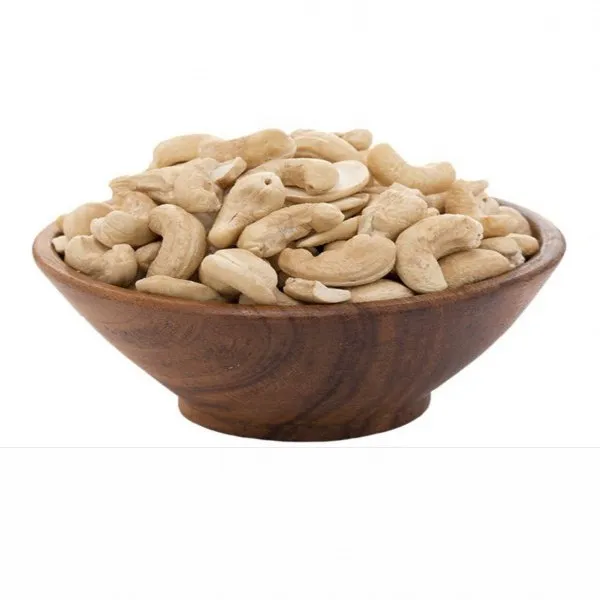Cashew nuts, scientifically known as Anacardium occidentale, are beloved among snack enthusiasts and food aficionados worldwide. Although classified as a nut, they are technically the seeds of a tropical evergreen tree native to Brazil. This unique nut is not only deliciously versatile but also boasts a host of health benefits. In this article, we will explore the history, cultivation, nutrition, uses, and potential health advantages of cashew nuts.
1. Historical Background:
Cashew nuts have a rich historical background, originating in northeastern Brazil and being introduced throughout the world by Portuguese explorers in the 16th century. Initially, cashew trees were cultivated for their apples, a swollen fruit-like structure attached to the cashew nut. Over time, however, the seed became the primary focus due to its market demand, versatility, and nutritional value.
2. Cultivation:
Cashew trees thrive in tropical climates and can now be found in several countries worldwide, including India, Vietnam, Nigeria, and Thailand. The cultivation process of cashew nuts is a complex and labor-intensive affair, with several stages involved. From tree grafting to harvesting, processing, and market distribution, each step contributes to the quality and value of the final product.
3. Nutritional Profile:
Cashew nuts are not only delectable but also packed with essential nutrients. These include healthy monounsaturated fats, high-quality protein, dietary fiber, vitamins (such as vitamin E, vitamin K, and B vitamins), and minerals (such as magnesium, copper, and zinc). Additionally, cashew nuts are low in sugar and cholesterol-free, making them a great choice for those seeking a balanced and nutritious diet.
4. Culinary Uses:
One of the primary reasons for cashew nuts’ popularity is their culinary versatility. From sweet to savory dishes, cashews add a unique flavor and texture. They are widely used in various cuisines worldwide, including Indian, Thai, Middle Eastern, and Western cuisines. Cashew nuts find their way into recipes for snacks, desserts, curries, stir-fries, salads, and even vegan cheeses and milk alternatives.
5. Industrial Applications:
Aside from their culinary applications, cashew nuts have found a place in various industrial sectors. Cashew shells contain a toxic resin, cardol oil, which can cause skin irritation but also has industrial applications. The oil is utilized in vehicle brake linings, paints, varnishes, and even insecticides. The cashew tree’s stems and leaves are used as firewood or fodder for livestock, minimizing wastage.
6. Health Benefits:
Cashew nuts offer numerous health benefits due to their impressive nutrient profile. Some of these advantages include:
a. Heart Health: Cashews’ monounsaturated fats and antioxidants can help lower LDL (bad) cholesterol levels, reducing the risk of cardiovascular diseases.

b. Weight Management: Despite being energy-dense, cashews can aid in weight management due to their high protein and fiber content, promoting satiety and reducing overeating.
c. Bone Health: Cashew nuts contain essential minerals like magnesium, calcium, and potassium, supporting bone health and preventing osteoporosis.
d. Diabetes Management: The low glycemic index of cashews makes them a suitable option for individuals with diabetes, providing sustained energy without causing drastic blood sugar spikes.
e. Eye Health: The presence of antioxidants such as lutein and zeaxanthin in cashews promotes eye health and reduces the risk of age-related macular degeneration.
7. Allergies and Precautions:
While cashews have an impressive array of health benefits, it’s worth noting that some individuals may be allergic to them. Cashew allergies can range from mild to severe, causing skin rashes, difficulty breathing, or even anaphylaxis. It’s essential to exercise caution and seek medical advice if you suspect an allergy or have a known allergy to other nuts like pistachios or almonds.
Conclusion:
Cashew nuts’ history, cultivation process, versatility in the culinary world, and impressive nutritional profile make them a highly sought-after delicacy. Their health benefits, including heart health, weight management, bone health, diabetes management, and eye health, contribute to their popularity. Whether enjoyed as a snack, incorporated into various recipes, or utilized in industrial applications, cashew nuts continue to captivate taste buds and provide value across multiple sectors.Title: The Cashew Nut: A Lucrative Business Venture
1. Introduction to the Business Potential of Cashew Nuts:
The cashew nut industry has witnessed substantial growth in recent years, driven by increasing consumer demand for healthy and nutritious snacks. This surge in popularity has paved the way for entrepreneurs and investors to explore the business potential of cashew nuts. From cultivation and processing to manufacturing and distribution, there are several lucrative avenues for entrepreneurs to explore within the cashew nut industry.
2. Cashew Nut Cultivation: A Profitable Venture:
Cashew nut cultivation presents a promising business opportunity for individuals looking to invest in the agricultural sector. As cashew trees require a tropical climate, countries like India, Vietnam, Nigeria, and Brazil are ideal locations for cashew plantation projects. With proper care, cashew trees can start producing nuts within three to five years, providing a consistent and profitable income stream for growers.
3. Cashew Nut Processing and Value Addition:
Cashew nut processing is a vital step in adding value to the raw product. The process involves removing the outer shell, drying, and grading the nuts to ensure quality. Entrepreneurs can consider setting up cashew processing units to provide processed cashew nuts, such as kernels, roasted nuts, flavored varieties, and even cashew butter. These value-added products have a higher profit margin and appeal to consumers seeking convenience and unique flavors.
4. Cashew Nut Export Industry:

The global demand for cashew nuts continues to rise, making the export industry an attractive option for entrepreneurs. Developing and fostering relationships with international buyers and establishing a reliable supply chain are crucial steps in successfully entering the export market. Regions like Africa, Asia, and Latin America have a competitive advantage due to their cashew cultivation capabilities and can tap into the export market for significant revenue generation.
5. Cashew Nut-Based Snacks and Products:
The increasing penchant for healthier snack options has led to the emergence of cashew nut-based snacks and products. Entrepreneurs can explore the manufacturing and distribution of cashew nut snacks, such as flavored roasted cashews, cashew brittle, cashew protein bars, and trail mixes. Additionally, cashew nut milk and vegan cheese alternatives derived from cashews have gained popularity among health-conscious consumers, presenting opportunities for innovation and product diversification.
6. Cashew Nut Oil and Extracts: A Lucrative Niche Market:
Cashew nut oil and extracts offer a niche market opportunity for aspiring entrepreneurs. Cashew nut shells, which are typically discarded, can be used to extract cashew nut shell liquid (CNSL). CNSL contains cardanol and is used in the production of resins, coatings, and adhesives. Cashew nut oil, obtained from pressing the nuts, is valued for its aromatic flavor and is used in cooking, cosmetics, and pharmaceutical products. Capitalizing on these niche markets can yield significant profits for entrepreneurs.
7. Cashew Nut Processing Machinery and Equipment:
Entrepreneurs can also venture into the manufacturing and distribution of cashew nut processing machinery and equipment. As the cashew industry continues to expand, the demand for efficient and technologically advanced processing equipment is on the rise. Manufacturing and supplying machinery for de-shelling, drying, grading, and roasting cashew nuts can be a profitable business avenue, catering to the needs of cashew processors and exporters worldwide.
8. Organic Cashew Nuts: Tapping into the Health and Sustainability Trends:
The global shift towards organic and sustainable products has created a demand for organic cashew nuts. Entrepreneurs can explore organic cashew nut cultivation, processing, and marketing, targeting health-conscious consumers who prioritize organic and environmentally friendly products. Obtaining organic certifications and highlighting sustainable practices can provide a competitive edge and attract premium prices in the marketplace.
9. Cashew Nut Retail and E-commerce:
Setting up a retail business focused on cashew nuts provides an opportunity to tap into local markets and establish a loyal customer base. Entrepreneurs can open physical stores or explore the e-commerce space, offering a wide variety of cashew nut products and unique flavors. Engaging with customers through promotions, tastings, and loyalty programs can boost sales and brand loyalty.
10. Sustainable Sourcing and Ethical Practices:
In recent years, consumers are increasingly concerned about the ethical sourcing of products. Entrepreneurs in the cashew nut industry can differentiate themselves by prioritizing sustainable practices and fair trade principles. Implementing responsible sourcing, supporting local farmers, and ensuring fair wages can enhance the brand reputation and appeal to socially conscious consumers.
11. Potential Challenges and Mitigation Strategies:
While the cashew nut industry presents numerous business opportunities, it also comes with potential challenges. These include price fluctuations, market volatility, disease outbreaks, and supply chain disruptions. Entrepreneurs should stay updated on market trends, diversify their product offerings, establish strong relationships with suppliers and buyers, and invest in adequate quality control measures to mitigate risks.

12. Conclusion:
The cashew nut industry offers a wide range of business opportunities, from cultivation and processing to manufacturing, distribution, and product innovation. With its increasing global demand, versatility, and nutritional benefits, the cashew nut market is ripe for entrepreneurs looking to capitalize on this lucrative industry. By considering the various avenues mentioned above and implementing effective strategies, aspiring entrepreneurs can carve a successful niche in the cashew nut business realm.










